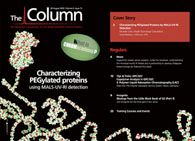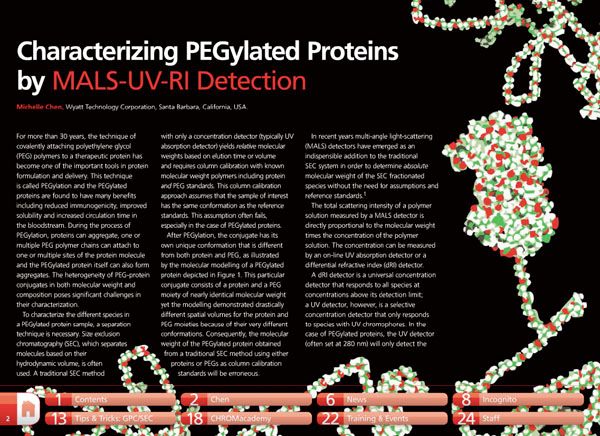Characterizing PEGylated Proteins by MALS-UV-RI Detection
Characterizing PEGylated Proteins by MALS-UV-RI Detection
For more than 30 years, the technique of covalently attaching polyethylene glycol (PEG) polymers to a therapeutic protein has become one of the important tools in protein formulation and delivery. This technique is called PEGylation and the PEGylated proteins are found to have many benefits including reduced immunogenicity, improved solubility and increased circulation time in the bloodstream. During the process of PEGylation, proteins can aggregate, one or multiple PEG polymer chains can attach to one or multiple sites of the protein molecule and the PEGylated protein itself can also form aggregates. The heterogeneity of PEG-protein conjugates in both molecular weight and composition poses significant challenges in their characterization.

New Method Explored for the Detection of CECs in Crops Irrigated with Contaminated Water
April 30th 2025This new study presents a validated QuEChERS–LC-MS/MS method for detecting eight persistent, mobile, and toxic substances in escarole, tomatoes, and tomato leaves irrigated with contaminated water.
University of Tasmania Researchers Explore Haloacetic Acid Determiniation in Water with capLC–MS
April 29th 2025Haloacetic acid detection has become important when analyzing drinking and swimming pool water. University of Tasmania researchers have begun applying capillary liquid chromatography as a means of detecting these substances.

.png&w=3840&q=75)

.png&w=3840&q=75)



.png&w=3840&q=75)



.png&w=3840&q=75)










